The animal kingdom is full of incredible adaptations, and jumping is one of the most impressive among them. Whether to hunt, escape predators, navigate rugged terrain, or simply get from one place to another, many animals have evolved powerful legs and agile bodies that allow them to leap great heights and distances.
In this article, we introduce you to 15 animals that are exceptional jumpers—some known for their vertical jumps, others for their horizontal distance. You’ll discover land mammals, sea creatures, insects, and even spiders that defy gravity with every leap.

Jumping serves many vital purposes in nature:
Escaping predators
Catching prey
Moving across obstacles
Displaying strength or fitness
Play and social behavior
Let’s explore the world’s most fascinating jumpers.
Known as one of the highest-jumping animals on Earth, the puma can leap up to 5 meters (16 feet) vertically and 12 meters (39 feet) horizontally. This stealthy big cat uses ambush and leaping techniques to hunt deer and other prey. Its powerful legs make it a dominant predator in the Americas.

Native to steep, rocky mountains in North America, mountain goats can leap up to 4 meters (13 feet), even on icy cliffs. Their strong hooves, muscular backs, and necks help them navigate dangerous terrain with ease and escape predators with swift vertical jumps.
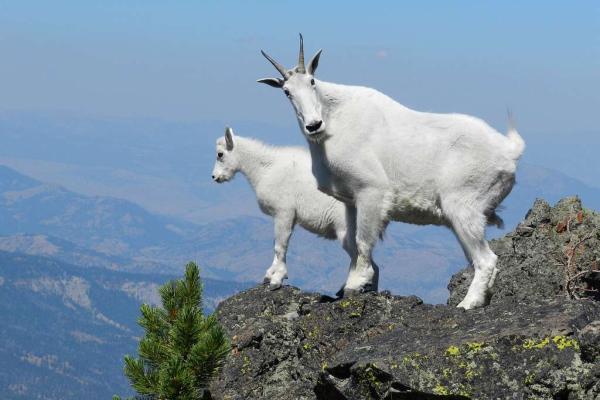
These tiny arachnids can leap up to six times their body length. They don’t use muscles to jump—instead, they rely on hydraulic pressure by increasing blood flow to their legs. For safety, they often spin a silk thread before jumping, like a lifeline. Their 8 keen eyes help them calculate jumps precisely.
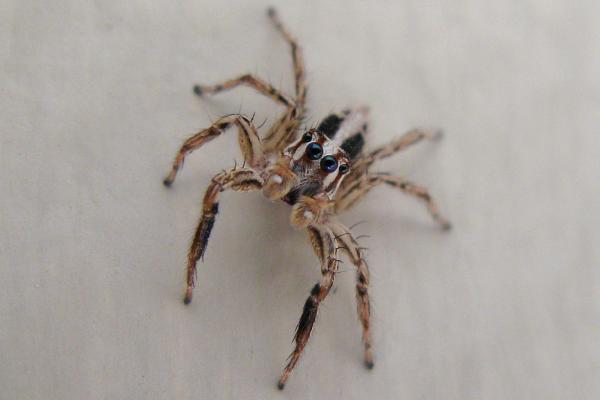
Cats are natural jumpers, capable of leaping up to 2.13 meters (7 feet) in a single bound. Their strong hind legs and balance help them hunt and escape danger. Some cats have survived falls from over 30 stories with only minor injuries due to their righting reflex and shock-absorbing body structure.
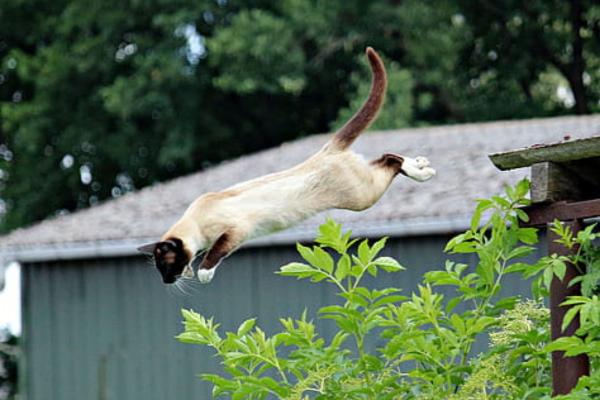
dolphins.html">Dolphins are not just smart and social—they're impressive jumpers, too. They can leap up to 7.9 meters (26 feet) above the water surface. dolphins.html">Dolphins jump to navigate, communicate, play, hunt, or even show dominance. These jumps are often seen in the wild and in marine shows.

The impala, an agile African antelope, can leap up to 3 meters (10 feet) high and 10 meters (33 feet) in distance. Their strong legs help them avoid predators like cheetahs and leopards, zigzagging through the savanna with elegant, high-speed jumps.
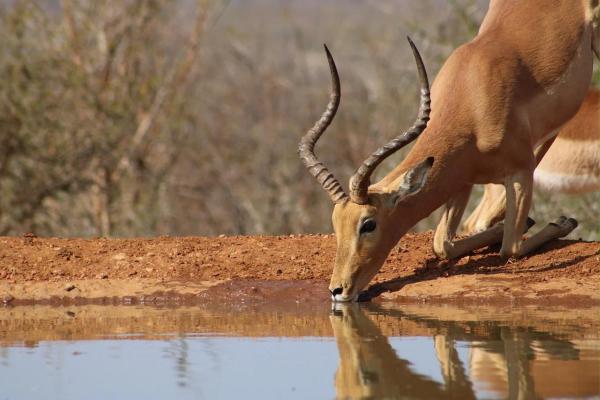
Tree frogs spend most of their lives in trees and use jumping as their primary way of moving. Though they’re only about 10 cm long, they can jump up to 2 meters (6.5 feet)—20 times their body length. Their suction-cup toes allow them to cling to leaves and branches after long leaps.

Hares are built for speed and agility. With long, muscular hind legs, they can jump great distances while fleeing predators. Some hares have been observed jumping higher than a human's height, using explosive bursts of energy during sprints.

Kangaroos don’t walk—they hop. The red kangaroo is the fastest and highest jumper among them. It can jump 3 meters (10 feet) high and 9 meters (30 feet) long, and sustain speeds up to 55 km/h (34 mph). Their name "Macropus" means "big foot", and they use both their hind legs and tail for balance and propulsion.
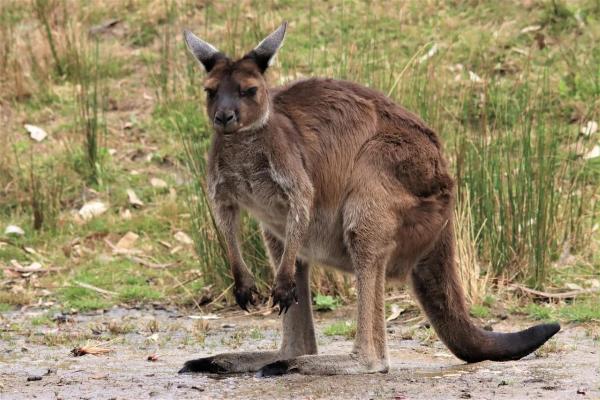
Springboks have a unique jumping style called “pronking”—they arch their backs, lower their heads, and leap stiff-legged straight into the air. This may serve as a warning signal, a display of fitness, or even a defense tactic. They can leap up to 15 meters (49 feet) horizontally.
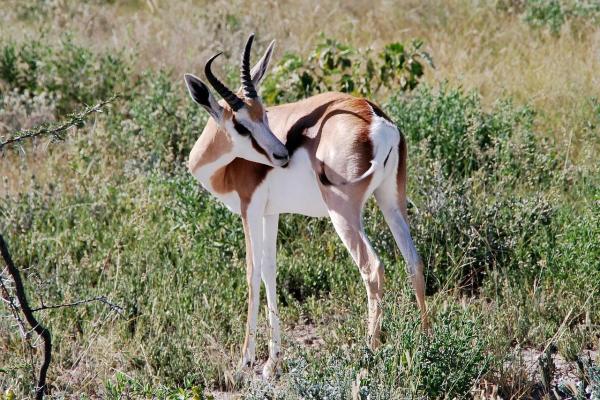
Unlike others who jump to flee, red foxes use jumping to hunt. They pounce up to 1.5 meters (5 feet) in height, crashing down on prey hidden in snow or grass. Their long, bushy tail helps maintain balance and control during the leap.

The largest dolphin species, orcas are capable of breaching—jumping completely out of the water. These powerful leaps are used for communication, play, and even hunting. Watching a full-grown orca leap out of the ocean is one of nature’s most spectacular sights.
Fleas are among the most efficient jumpers relative to body size. They can jump over 100 times their height, using a specialized protein called resilin, which stores and releases elastic energy in milliseconds—ideal for escaping threats and finding new hosts.
Crickets use their strong hind legs to jump 20+ times their body length. Their jumps help them evade predators, navigate terrain, and sometimes attract mates. Their legs are powered by muscles and leverage, allowing sudden, spring-loaded takeoffs.
Native to North American deserts, kangaroo rats hop instead of walk. Their enlarged hind limbs allow them to jump over 2 meters (6.5 feet)—useful for avoiding snakes and other predators. Their long tails help with balance and steering mid-air.

Jumping is more than a trick—it's a survival strategy perfected by evolution. From the mighty puma and leaping tree frog to the tiny flea, each animal’s jumping ability reflects its environment and lifestyle.
Want to discover more record-breaking or gravity-defying animals? Visit our Wild Animals category to explore more!
Referencias
Guinness World Records. (2018). Longest jump by a cat. Disponible en: https://www.guinnessworldrecords.com/world-records/111847-longest-jump-by-a-cat
BBC. (2012). Who, What, Why: How do cats survive falls from great heights? Disponible en: https://www.bbc.com/news/magazine-17492802
Guinness World Records (s.f.) Highest jump by a dolphin. Disponible en: https://www.guinnessworldrecords.com/world-records/76505-highest-jump-by-a-dolphin
Bibliografía
Lusseau, D. (2006). Why do dolphins jump? Interpreting the behavioural repertoire of bottlenose dolphins (Tursiops sp.) in Doubtful Sound, New Zealand. Behavioural processes, 73(3), 257-265.
Quinn, R. (2015). Animals in the air. Oxford: Oxford University Press.
Estes, R. (s.f.) Impala. Disponible en: https://www.britannica.com/animal/impala
Beatty, R., Beer, A., & Deeming, C. (2010). El libro de la naturaleza. Gran Bretaña: Dorling Kindersley.
animal tags:
We created this article in conjunction with AI technology, then made sure it was fact-checked and edited by a Animals Top editor.